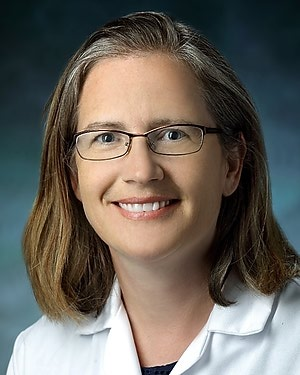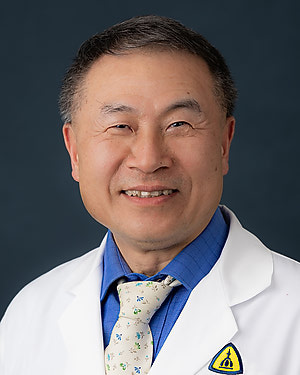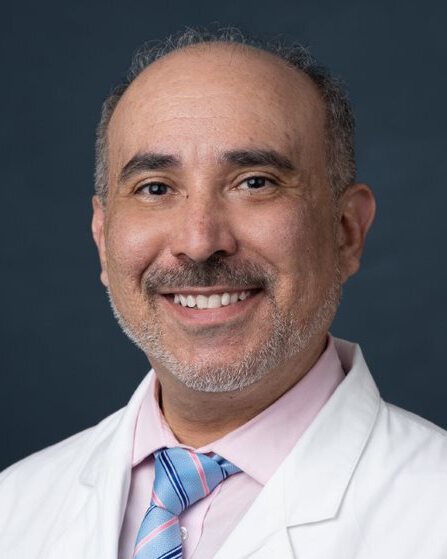Research Lab Results
-
Frailty Science and the Biology of Healthy Aging
Our Mission: To provide scientists, students, and community members with state-of-the-art information on frailty-related science and how it might impact health and wellness for older adults. Our Goal: To improve the understanding of how frailty develops, how to best assess it, and how to best treat and prevent frailty-related decline. -
Pilot and Exploratory Studies Core
The Pilot and Exploratory Studies Core supports pilot and exploratory studies related to developing effective prevention of and therapies for frailty in older adults. Our objective is to facilitate independence in older adults. We provide funding; access to biostatistical, biological and clinical research core resources; and mentoring and oversight to completion of pilot and exploratory studies. -
Peter Abadir Lab
The Abadir Lab focuses on uncovering the molecular mechanisms underlying frailty, resilience, and age-related diseases to bridge the gap between basic science and clinical applications. Grounded in translational research, the lab investigates the intricate interplay between mitochondrial biology, the renin-angiotensin system (RAS), and chronic inflammation, with an emphasis on their roles in physical and cognitive decline.
Key Areas of Research
- Mitochondrial and Angiotensin Biology
- Discovery and exploration of the mitochondrial angiotensin system (MAS) as a critical regulator of cellular energy, inflammation, and resilience.
- Investigating age-related mitochondrial dysfunction and its contribution to frailty, chronic inflammation, and neurodegeneration.
- Biomarker Development
- Identification of novel biomarkers for aging-related frailty and resilience, including cell-free DNA fragments and kynurenine metabolites.
- Development of diagnostic tools for early detection of physical and cognitive decline.
- Innovative Therapeutics and Bioengineering
- Designing nano-delivery systems for targeted drug delivery to mitochondria, enhancing wound healing and reversing cellular senescence.
- Integration of artificial intelligence and engineering to create advanced diagnostic tools for assessing frailty and aging-related conditions.
- AI and Technology in Aging
- Leveraging artificial intelligence and bioengineering to address challenges in geriatric medicine through collaborations with the Johns Hopkins AI & Technology Collaboratory for Aging Research (AITC) and the Gerotech Incubator Program.
Our Approach
The Abadir Lab employs a multidisciplinary methodology, combining molecular biology, bioinformatics, and engineering to tackle the pressing health challenges of aging populations. By fostering collaboration between clinicians, scientists, and engineers, the lab ensures that discoveries translate into tangible benefits for older adults.
Translational Impact
With a focus on frailty, inflammation, and cognitive decline, the Abadir Lab contributes to the development of personalized interventions and precision medicine approaches. Our work has laid the foundation for:
- Repurposing drugs like losartan and valsartan for treating aging-related chronic wounds.
- Unveiling the role of mitochondrial dysregulation in Alzheimer’s disease and frailty.
- Innovating tools for clinical assessments of resilience and functional decline.
Collaborations and Mentorship
The Abadir Lab is committed to training the next generation of scientists, fostering an interdisciplinary environment where students and postdocs explore cutting-edge aging science. Collaborations with the Johns Hopkins GeroTech Incubator Program and the Translational Aging Research Training Program (T32) further enrich this ecosystem of innovation.
Join Us
Whether you're a researcher, student, or collaborator, the Abadir Lab welcomes individuals passionate about transforming aging research into clinical practice.
- Mitochondrial and Angiotensin Biology
-
Center on Aging and Health
The Center on Aging and Health pursues creative approaches to solve the important health and health care problems for an aging population. Research in our center involves population-based and clinical studies of the causes, correlates, and consequences of aging-related conditions, including frailty, disability, and social isolation. We house four distinct research working groups: the Frailty and Multisystem Dysregulation Working Group; the Family and Social Resources Working Group; the Cognitive and Sensory Functions Working Group; and the Biostatistics, Design and Analysis Working Group. We provide key infrastructure, such as the statistical data core, that supports clinical- and population-based research and education with expertise in research with older adults. -
Qian-Li Xue Lab
The primary area of statistical expertise in the Qian-Li Xue Lab is the development and application of statistical methods for: (1) handling the truncation of information on underlying or unobservable outcomes (e.g., disability) as a result of screening, (2) missing data, including outcome (e.g., frailty) censoring by a competing risk (e.g., mortality) and (3) trajectory analysis of multivariate outcomes. Other areas of methodologic research interests include multivariate, latent variable models. In Women's Health and Aging Studies, we have closely collaborated with scientific investigators on the design and analysis of longitudinal data relating biomarkers of inflammation, hormonal dysregulation and micronutrient deficiencies to the development and progression of frailty and disability, as well as characterizing the natural history of change in cognitive and physical function over time.
-
Older Americans Independence Center
The Older Americans Independence Center (OAIC) studies frailty, an age-related condition in which older adults lose the capacity to cope with stressors and become vulnerable to functional decline, loss of independence and mortality. Since its original funding in 2003, the center has helped demonstrate that frailty is a syndrome caused by multiple biological mechanisms that are expressed through characteristics of decreased resiliency and reserve in older adults. The mission of OAIC is to provide a hypothesis-driven, frailty-focused, highly interdisciplinary center where supported investigators receive the expertise, resources and training necessary to make fundamental discoveries related to the origins and causes of frailty and then move these discoveries towards frailty-focused interventions. -
Cynthia Boyd Lab
Research in the Cynthia Boyd Lab concentrates on the clinical care of comorbid chronically ill and frail older adults, both chronically and during acute illnesses. Current projects focus on the treatment burden among older adults with multimorbidity, the importance of competing risks in decision-making for the elderly, the effects of guided care on the quality of care and the improvement of clinical practice guidelines for the elderly.
-
The Swenor Research Group
The Swenor Research Group focuses on examining the interrelationship between vision loss and aging. This includes determining the effects of visual impairment and eye disease on physical and cognitive functioning in older adults, and identifying interventions that could enhance the health of older adults with visual impairment and eye disease.
-
Sean Leng Lab
The Sean Leng Lab studies the biology of healthy aging. Specific projects focus on chronic inflammation in late-life decline; immunosenescence and its relationship to the basic biological and physiological changes related to aging and frailty in the human immune system; and T-cell repertoire analysis.



